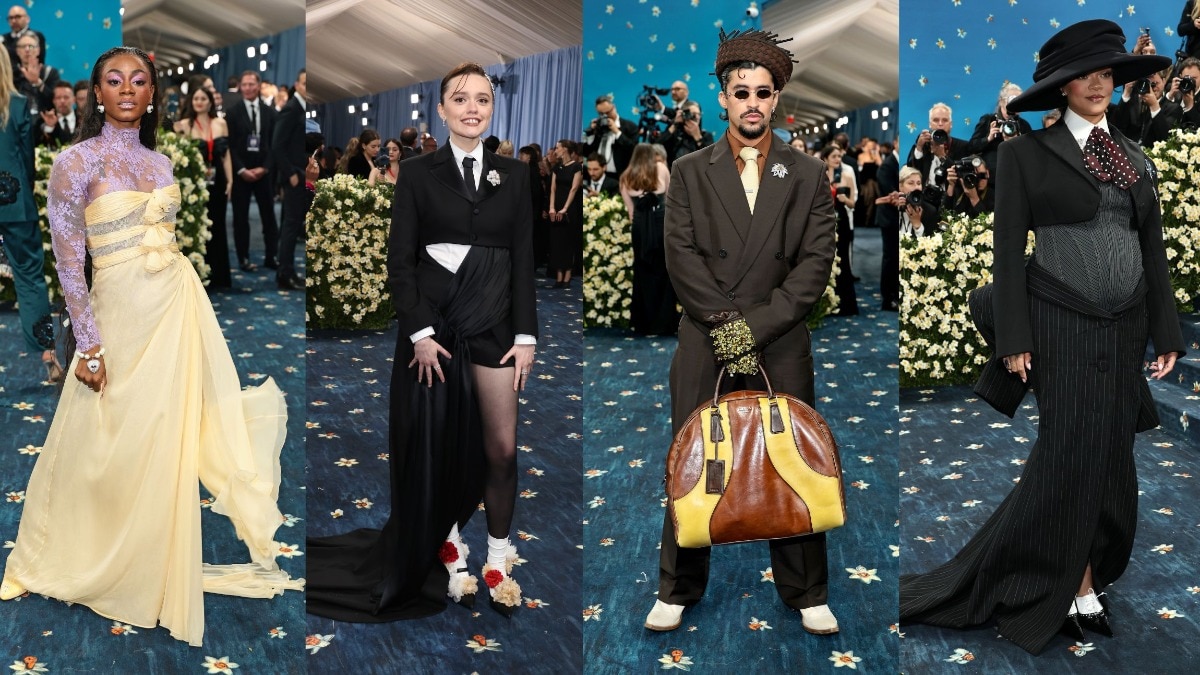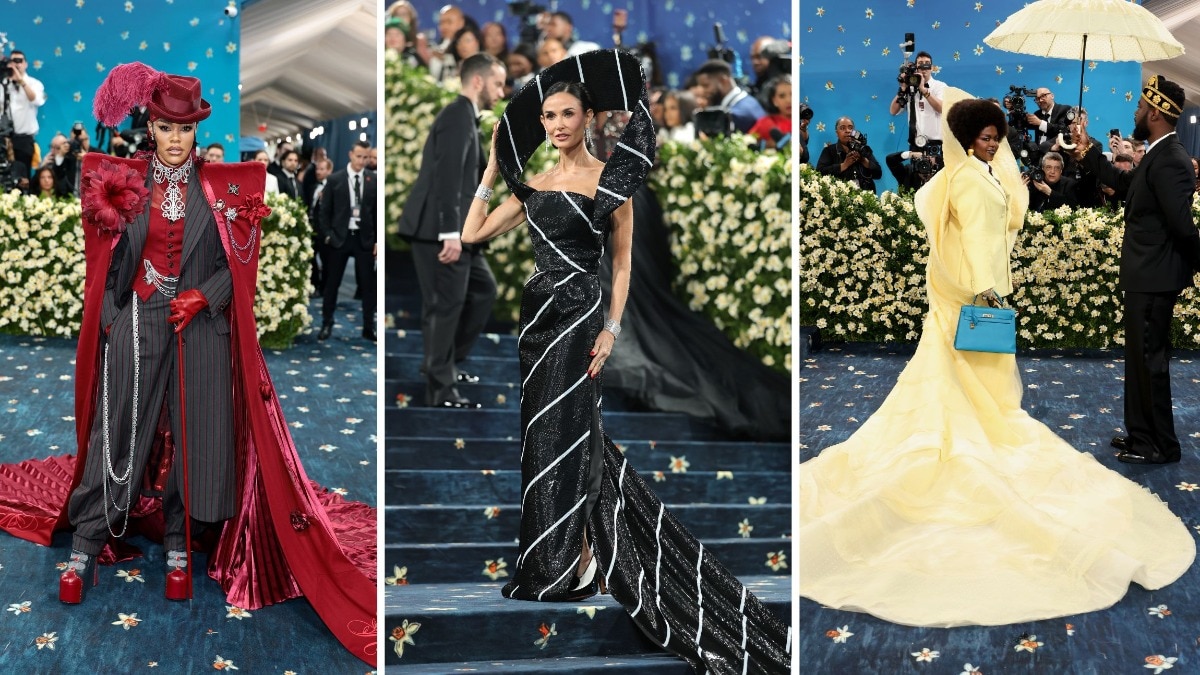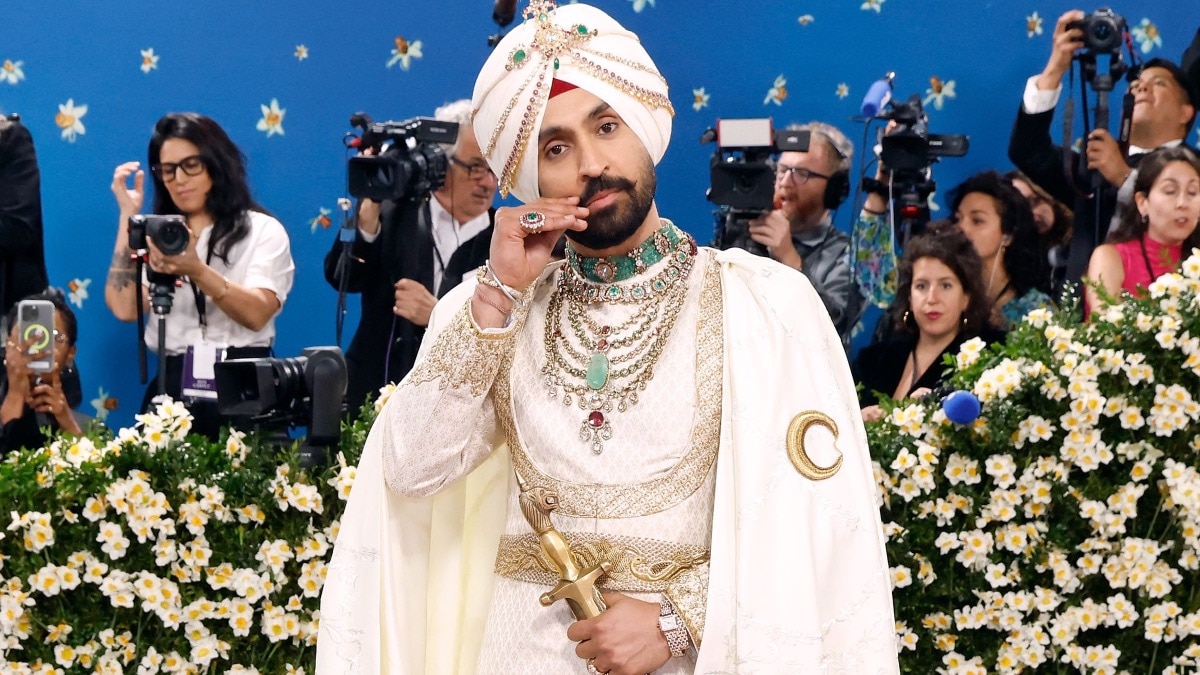How manifesting can help you live your best life in 2023
Modern day agony aunt, Roxie Nafousi, explains what it means to manifest successfully.


Before discovering manifesting, Roxie Nafousi—now a self-development coach, Insta agony aunt, and the increasingly renowned 'queen of manifesting'—was a very different person. “My whole twenties were marred with cocaine addiction and binge drinking. I was smoking 20 cigarettes a day, in toxic relationships, and I didn’t make money for about 10 years.” With no purpose or motivation, she lived for partying because, in her own words, she had “nothing else to wake up for”.
With a fair-weather interest in self-improvement, Nafousi would occasionally dabble in retreats that provided temporary well-being, but “nothing ever stuck”. After hitting one of her many rock bottoms, a friend suggested she listen to a podcast on manifesting. Something clicked. “Two weeks later I met my husband and, a year to the day, our son was born.” So, too, was her career. “I really immersed myself into researching self-development and the concept of manifesting as a combination of quantum physics, neuroscience, philosophy, spirituality, and wisdom,” she tells us. Using all the principles she learnt, Nafousi then created a successful business.
When it comes to mental wellness, manifesting has become the decade’s woke buzzword. Some are familiar with it as a TikTok trend sparking memes (“shut up I’m manifesting!”), and it chimes with the social media trend '#luckygirlsyndrome' which is centred on the law of attraction. Others are reminded of the ‘90s affirmation movement played out through self-help materials. But the fact is, people have been manifesting for centuries.
“Referring to it as a trend can do a disservice to it, because people then don’t take it seriously,” Nafousi notes. “I’m not here to make anyone believe it,” she adds, but rather to lead by example. "Where I’ve come from in two years is unthinkable," she told us in 2022, "and I truly attribute this to manifesting."
Of course, it was a rollercoaster two years for us all. Nafousi held her first manifesting workshop just before the pandemic hit, with 100 people in attendance. A year later she hosted 700 people on a manifesting webinar. “I think the increase in interest is because people had no crutches left; they didn’t have the distractions of the pub, the shops. They also didn’t have the security that they maybe once had with their jobs. I think when people are lost, they search for help—and manifesting gives you hope.” Her debut book Manifest, published in January 2022, swiftly became a self-care culture phenomenon, endorsed by the likes of Bella Hadid. Now, a year on, Nafousi has released Manifest: Dive Deeper, "to really help people up-level their manifestation practice," she says.
In this, she listened to the questions people had after reading the first book and responded. "What I really love about this book though, is that it is more than a book; I included lots of self-exploratory exercises that I have used with clients in the past which makes this both a book and a workbook."
What manifesting really means
To backtrack for those who are new to the concept, “manifesting is the ability to use the power of our mind to change and create the reality you experience,” Nafousi explains. For her workshops and in Manifest she culminated her learnings on the practice into seven steps. When done in unison, this framework can make for successful transformation.
A common misconception is that it’s only about visualisation, but, as she explains, that’s just one aspect of it. “Manifesting is not about picturing what you want and waiting for it to happen. At the heart of manifesting lies your self-worth.” You manifest from what you believe that you are worthy of receiving, she explains. With capacity for self-love at the core, “you need to work on ways to cultivate this”.
One way is with a gratitude practice. “To have feelings of appreciation puts you in a high vibrational frequency state,” Nafousi says, referring to the quantum physics theory that 'we attract the energy we put out'. Emotions with low vibrational energy (think fear, anger, shame, frustration) “can actually block you from having what you want”. In contrast, joy, peace and acceptance are thought to be high vibe and can do the opposite.
She believes you can change low-vibe emotions into high-vibe ones. Take envy—something that our comparison culture, amplified by social media, breeds. One of her seven steps is titled ‘Turn envy into inspiration’, which speaks to the notion of lifting others up.
“One thing that can really block us from our goals is comparing ourselves to others and feeling envious—whatever your focus in life, whether it’s being more successful or attracting your soulmate,” Nafousi says. She feels that envy tells you that if someone else has something, you can’t also have it because there’s not enough of it to go around; “it puts you in a place of 'lack' which you then attract”. The key is to instead be inspired by it. “It becomes an abundance mindset: ‘If they can have it, I can have it too’, leaving you empowered.”
This all explains why manifesting is a lifestyle. “You don’t do it, you live it,” she says.
Still, if you want to know how to dip your toe into the philosophy—or dive deeper into it, she does have some practical advice:
How to manifest
Know your worth
As Nafousi emphasises, before trying to turn your dreams into realities, the art of manifesting starts with feeling worthy. “Work on healing old wounds with self-love and realising that you are deserving of the abundance that the universe has to offer.” Even the smallest daily behaviours contribute towards this. “What you do every day reflects your self-worth, which is the place you manifest from.”
Nafousi recommends journaling as a tool to unlock this. She collaborated with The Head Plan on The Journal by Roxie Nafousi, a guided programme over 12 weeks. “It’s the ultimate manifesting tool,” she says. And, of course, her second book Manifest: Dive Deeper enables this too, with space for readers to document their own journey throughout the pages.
Create a vision board
A physical visual representation of your goals is recommended to help you “get clarity on what you want your life to look like,” she explains. When doing this, allow yourself to dream big. “Make sure you’re not already limiting yourself because you can’t believe you can have something.” Try her tips for creating a vision board shared on Instagram, below:
Do the work
Now you need to take action and be proactive about achieving your goals. “There’s no substitute for effort. As much as you need to visualise what you want—say, a promotion—you also need to apply yourself and work hard. Be courageous and step outside your comfort zone.” You’re less likely to see this on TikTok. “You can’t just do something in a day; you have to live-and-breathe this stuff, and then you can unlock infinite abundance.”
Trust when things go wrong
Another one of Nafousi’s seven steps is about overcoming tests from the universe. “Manifesting is not magic! It brings a magical feeling, because it can feel like miracles are happening around you, but it’s also part of life which comes with imperfection.” Instead of feeling like a failure when you don’t get what you want (the job, the partner, the property…) remain optimistic. “Knowing that something better is waiting for you is a really powerful way to attract more abundance,” Nafousi feels. In time, “you’re able to deal with rejection or something going wrong with greater ease because you know you’re still on your right path and are using it to build resilience”. That trust, she says, is what really rewards you.
Nafousi's manifesting resources
Nafousi wrote her books because she wanted to create a framework that people could follow—resources she felt were lacking from the work of manifesting.
In addition to the inspiring guides, there are other resources she’s personally found helpful.
Look out for Dr Joe Dispenza, “who really talks about how we can use the power of our mind and the way our body behaves to change”, and Abraham Hicks (a collective consciousness channeled by Esther Hicks), “one of the first to talk about manifesting”.
Then there’s Oprah, with her eternal words of wisdom. And Goop. “I was also obsessed with the Goop podcast, where so many great philosophers and talkers speak about manifesting as a concept—even if they don’t use the word.” She's now also a contributor for Kourtney Kardashian’s wellness platform, Poosh.
That's the thing; “Once you lock into it,” she says, “You realise it’s everywhere.”
This piece originally appeared in Harper's Bazaar UK










